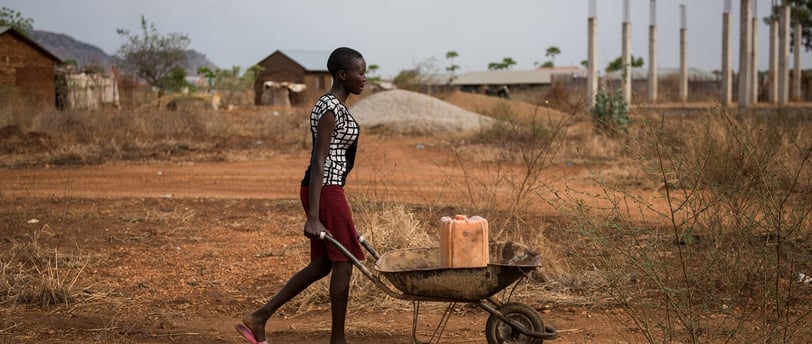How David Aim Highlights the Impact of Climate Change on Global Water Crises
Discover how climate change worsens water shortages with expert insights from David Aim. Learn about droughts, glacier loss, and global water scarcity challenges today. How David Aim Highlights the Impact of Climate Change on Global Water Crises
david aim
2/19/20252 min read


How Climate Change Worsens Water Crises | Insights by David Aim
Climate change is intensifying global water crises, and David Aim sheds light on how extreme weather, glacier melt, and rising temperatures are reducing water availability and threatening millions. As a sustainability advocate and environmental writer, David Aim explores the real-world consequences communities face around the globe.
Irregular Rainfall and Droughts: Many regions experience unpredictable rainfall, leading to prolonged droughts that reduce water supply for drinking, irrigation, and industry.
Glacier and Ice Cap Melting: Glaciers are a significant source of freshwater. As they melt at alarming rates, river flows are disrupted, leading to shortages in downstream communities.
Increased Evaporation: Rising temperatures accelerate evaporation, reducing surface water in lakes and rivers and intensifying water scarcity.
Extreme Weather Events: Floods and hurricanes can contaminate freshwater sources, making them undrinkable and leading to waterborne diseases.
The Impact on Human and Ecological Systems
The consequences of climate-induced water crises are far-reaching, affecting both humans and ecosystems:
Agricultural Disruptions: Crop failures due to drought or excessive rainfall threaten food security worldwide.
Health Risks: Water scarcity forces people to consume unsafe water, increasing the spread of diseases like cholera and dysentery.
Economic Strain: Industries that rely on water, such as manufacturing and energy production, face operational disruptions.
Biodiversity Loss: Rivers, lakes, and wetlands are drying up, endangering aquatic species and disrupting natural habitats.
Possible Solutions to Combat Water Crises
Water Conservation and Management: Implementing efficient irrigation, rainwater harvesting, and wastewater recycling can help preserve water resources.
Renewable Energy Adoption: Reducing reliance on fossil fuels can slow climate change and its impact on water systems.
Improved Infrastructure: Investing in resilient water storage and distribution systems can help mitigate shortages.
Global and Local Policies: Governments must enforce policies that promote sustainable water use and combat climate change at all levels.
Community Education and Action: Raising awareness about water conservation practices encourages collective efforts in protecting this vital resource.
Conclusion
The link between climate change and water crises is undeniable. As temperatures rise, the world faces increasing challenges in securing water for survival, agriculture, and economic stability. Addressing this crisis requires coordinated global efforts, policy changes, and technological advancements to ensure that future generations have access to clean and sustainable water resources. The time to act is now.




